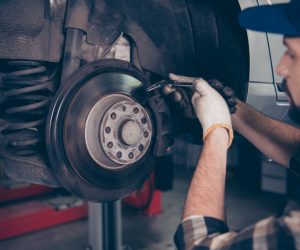What is an ELD and AOBRD?
An Automatic Onboarding Recording Device (AOBRD) is hardware that connects to a truck’s engine to document the driver’s hours-of-service (HOS).  An AOBRD is similar to an Electronic Logging Device (ELD), except an AOBRD documents and shows less data than an ELD. An ELD connects to the truck’s ECM to record a more precise reading of the driver’s HOS.
An AOBRD is similar to an Electronic Logging Device (ELD), except an AOBRD documents and shows less data than an ELD. An ELD connects to the truck’s ECM to record a more precise reading of the driver’s HOS.
Both ELDs and AOBRDs differ in how they record data and how much editing is allowed by the driver. Below is a summary chart from FMCSA’s comparison chart and section 395.15 on how these two devices document data, editing history and location.
Difference between ELDs and AOBRDs
The following shows the differences between an ELD and an AOBRD.
ELD
Recording:
- Time and Date
- Engine running hours
- Miles driven
- Location
- Identifying information including: driver, motor carrier, duty status, logging status, engine running status, and malfunctions.
Location:
Automatically recorded:
- Duty status change.
- 60 minutes breaks while driving.
- Whether the engine is on or off.
- Beginning and end of yard moves and personal transport.
Precision:
- 1 mile within “On-Duty Driving.”
- 10 miles within personal transport.
Editable History
- When an edit is made and by who.
- Edits require an annotation.
- Events recorded cannot be changed (only annotated).
- Shows edit history to DOT inspectors.
Driving Time
- Driving time is not editable.
AOBRD
Recording:
- Time and Date
- Engine running hours
- Miles driven
- Drive times
- Duty status
- Location
Location:
- Recording during every duty status change.
- Location can be manually entered.
Editable History
- Who and when an edit is made.
- Does not display edit history.
Driving Time
- Driving time can be edited when recognized by the wrong driver.
Should Truckers Buy an ELD or AORBD?
The ELD Mandate was set for ELDs not AORBDs. However, there is a “grandfather” ELD rule allowing truck drivers to continue using their AOBRDs until December 2019. However, after the December 2019 deadline all AOBRDs must be complaint with ELDs.
Being proactive can be beneficial when the deadline arrives. This is because training, practice sessions, maintenance schedules, plans, and other operative details can be ironed out. Ensuring your new system is online and operating correctly can help prevent any delays on the road for noncompliance, penalties, and any issues arising.
Just like transitioning from paper logs to electronic logs, the change for truck drivers can be difficult. It is advised to begin transitioning your drivers from AORBDs to ELDs before the December 2019 deadline to prepare them for a successful transition.



 Despite COVID-19 cases still rising, the Commercial Vehicle Safety Alliance has announced that this week Brake Safety Week 2020 wi...
Despite COVID-19 cases still rising, the Commercial Vehicle Safety Alliance has announced that this week Brake Safety Week 2020 wi...

